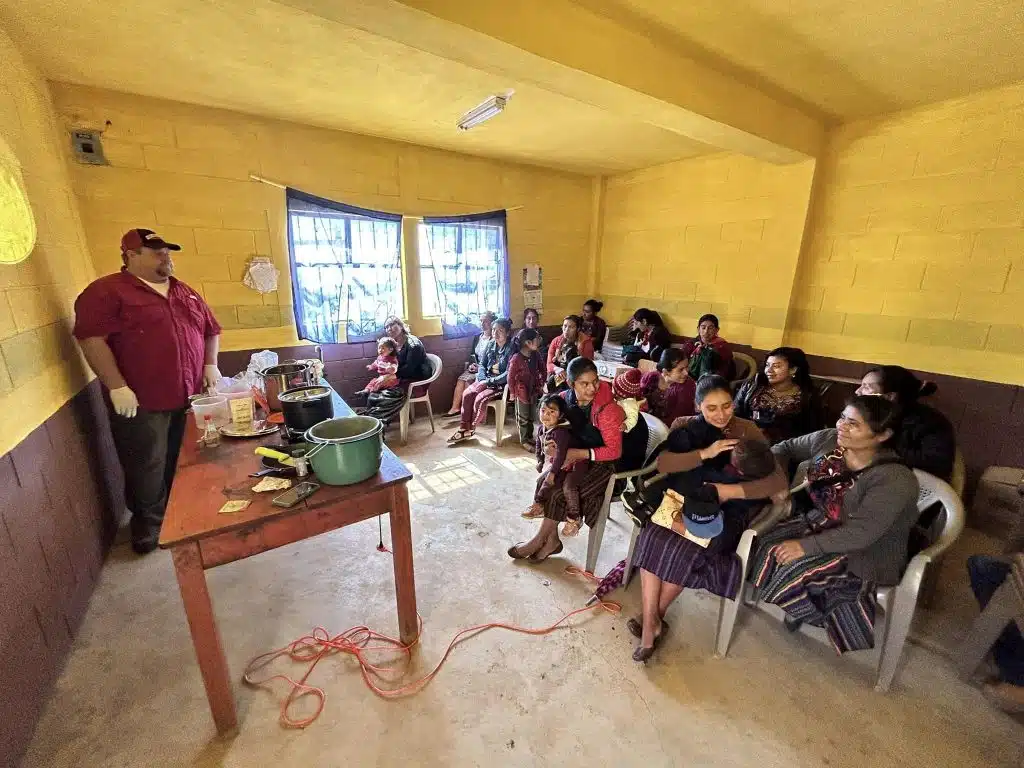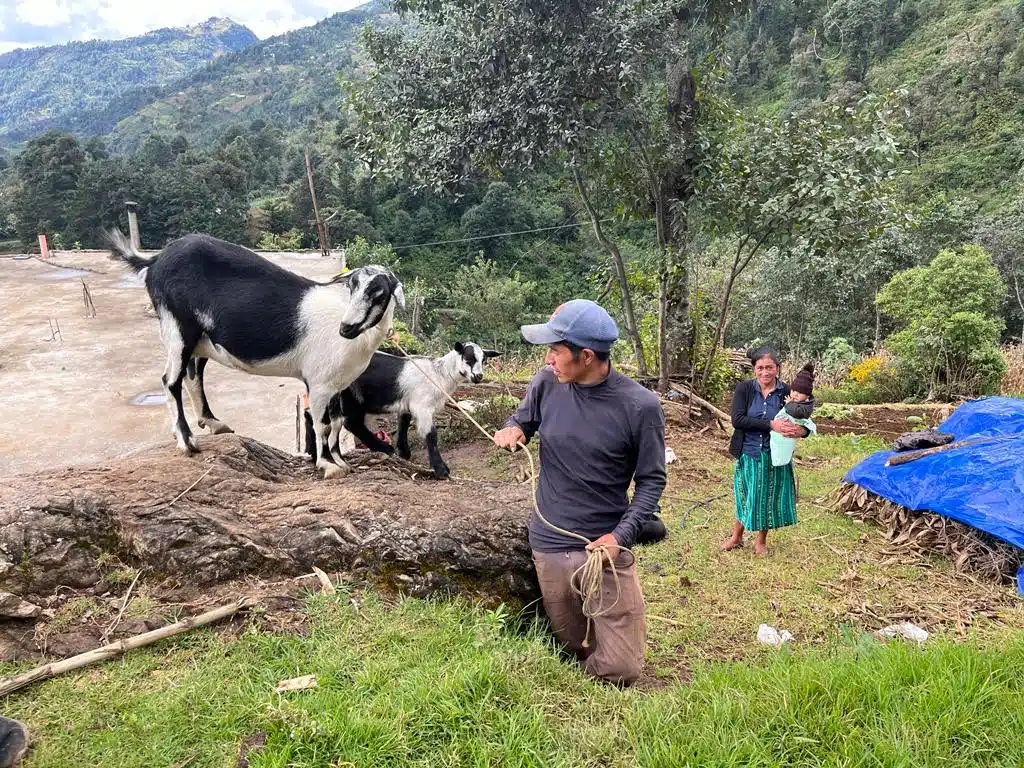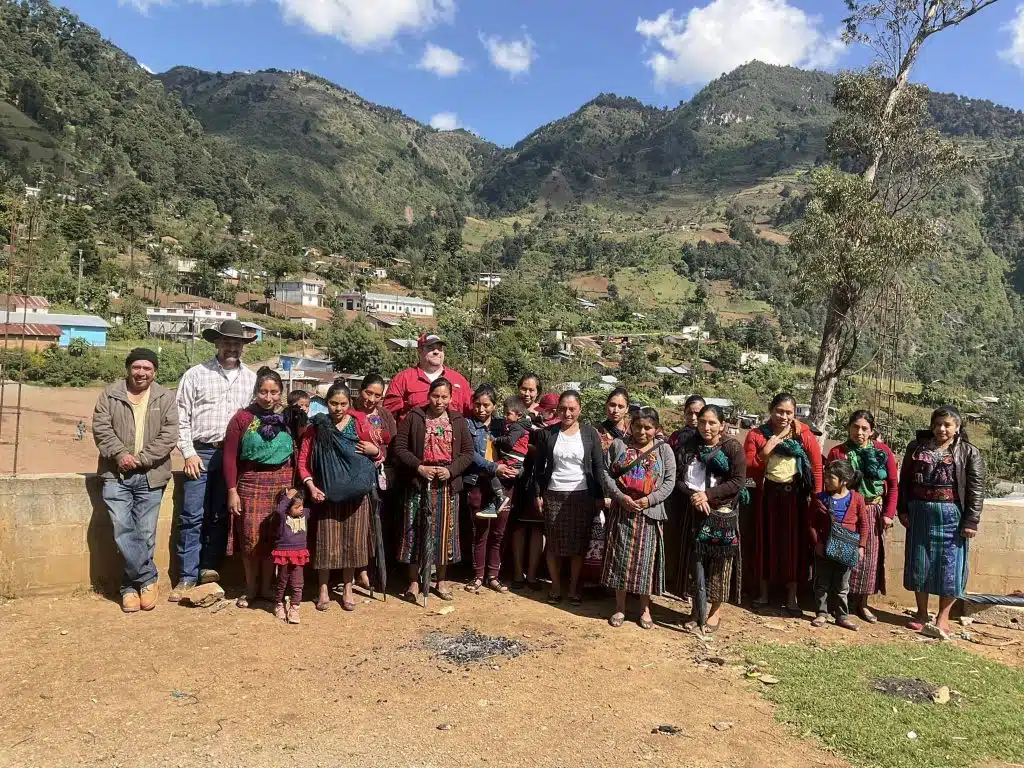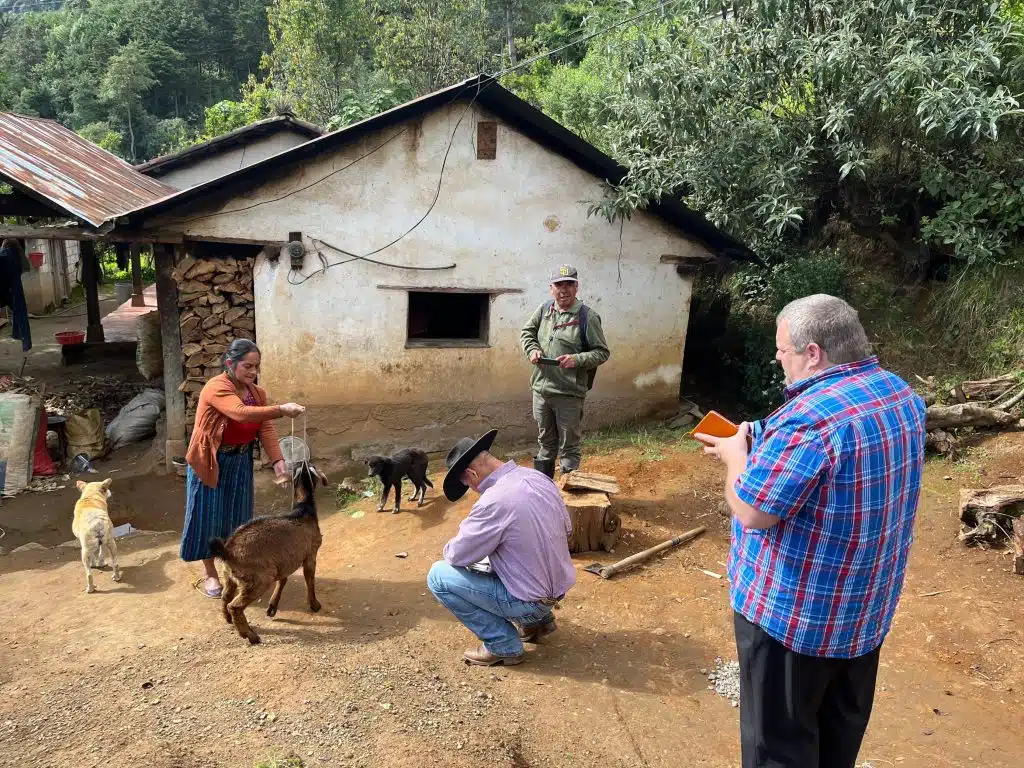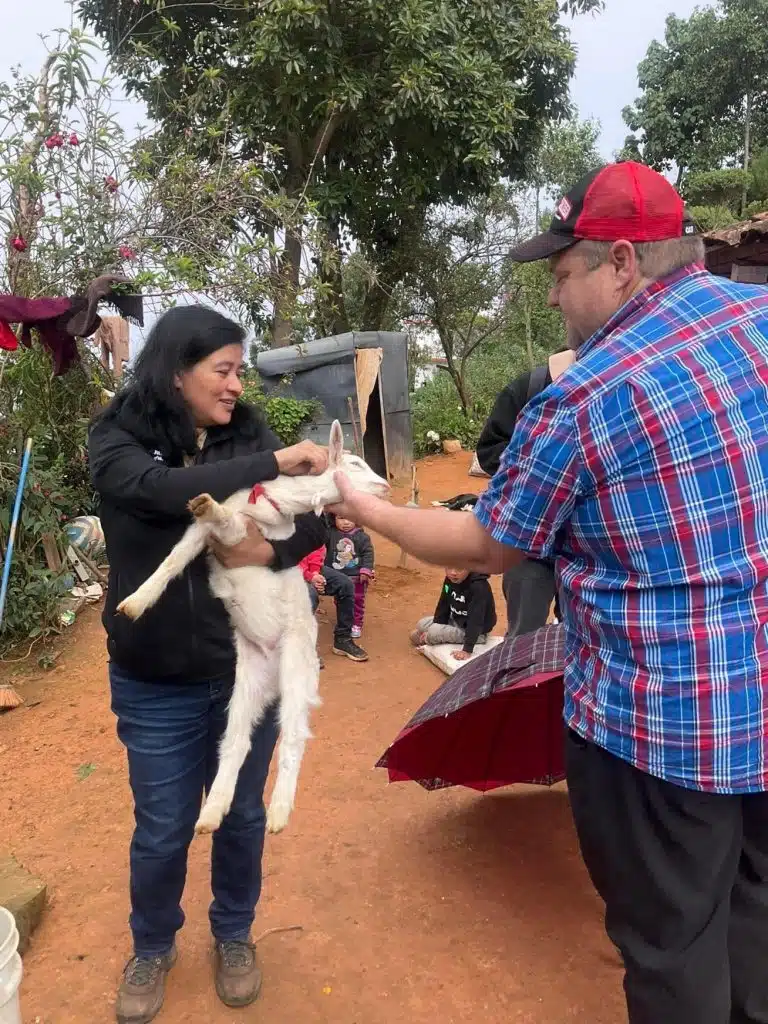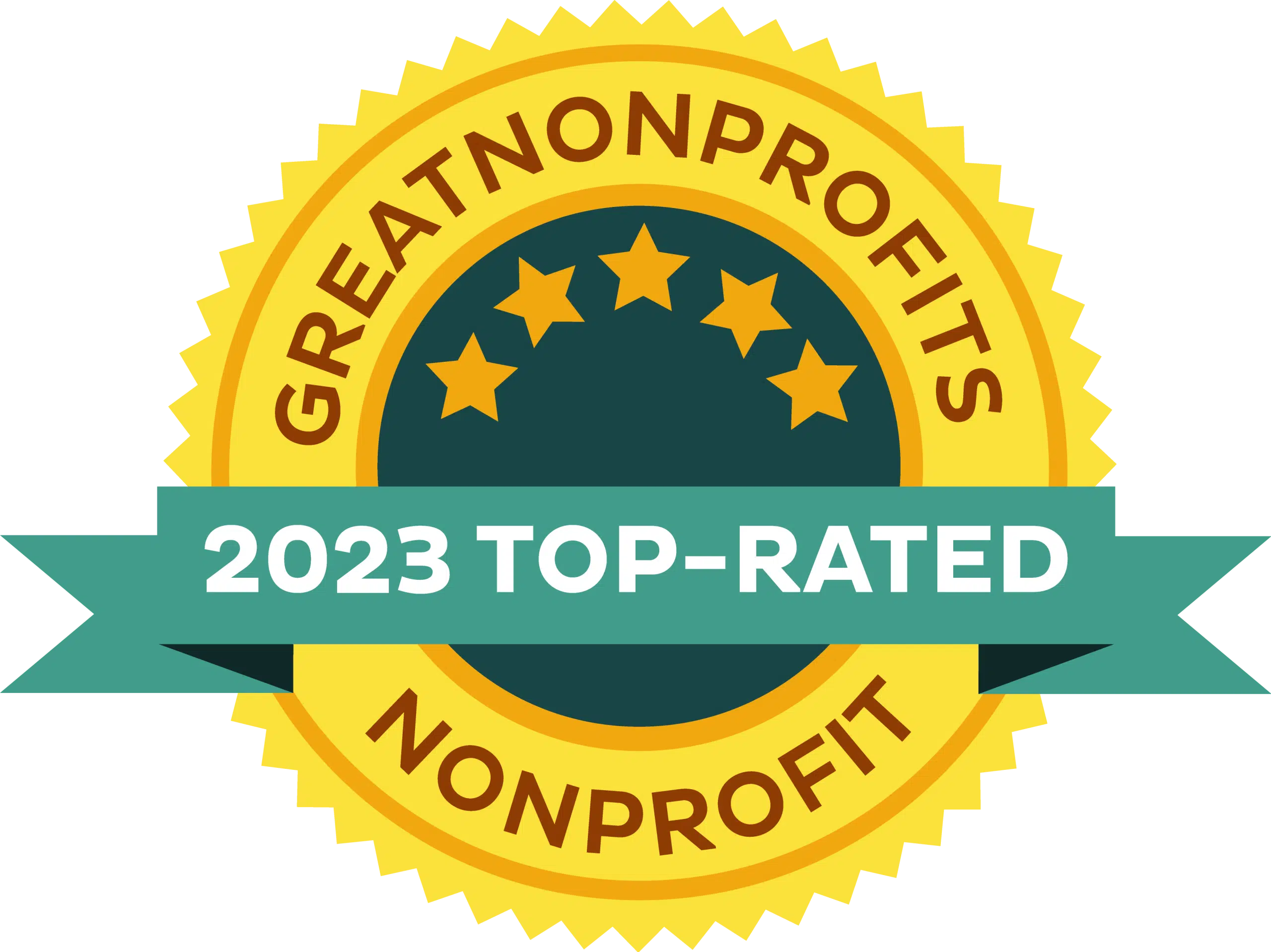Women-Led Small Livestock Production Builds Household Nutrition and Financial Security
For Martina Gregorio Lucas, agricultural production is a means of livelihood and a primary food source in her village of Centro Chochal, located in the Western Highlands of Guatemala. She grows and sells potatoes and snow peas to provide for her two children. However, because of climate change’s impact on crop production and a lack of market opportunities in rural mountain communities, many families like Gregorio’s struggle with food insecurity and malnutrition.
CABPRO technician (left) leads Martina Gregorio Lucas’ (right) goats to be checked by F2F volunteer, Scott Jenkins.
According to FAO, 48% of the population in the Western Highlands, who are predominantly Indigenous Mayans, suffer from chronic malnutrition. If families were able to diversify their small farm production and utilize their outputs more effectively, they could improve their food security and potentially create new income streams.
When Gregorio heard about an opportunity to learn about raising livestock through the Cabras para la Prosperidad (CABPRO) project, she registered to participate in order to provide milk and eggs for her children. CABPRO works to strengthen the capacity of 350 women who are pregnant or with children under five to raise dairy goats and chickens and improve their household nutrition.
Developed and financed by USAID and the Fundación Mario Lopez Estrada, CABPRO offers technical assistance and resources to families in Centro Chochal and six other mountain villages to develop livestock production for their household consumption. The women involved in the CABPRO project work with Farmer-to-Farmer (F2F) volunteers to incorporate best practices in their goat and chicken production, participate in cooking classes to increase the nutritional value of household meals, and receive training in financial literacy to manage household resources.
In November 2022, Gregorio received F2F Volunteer, Scott Jenkins, at her home to look over her goats and their environment. A trained goat farmer of over 20 years, Jenkins utilized his expertise in goat herd management, breeding, and goat milk-added value products to provide recommendations and classes for CABPRO participants during his assignment. During his first week, he visited Gregorio’s farm and other households to inspect their goats and offered specific recommendations on penning, breeding plans, and general goat health.
“He advised me on how to nourish the goats and the chickens and how to vaccinate the goat to remove diseases,” Gregorio said. “He helped me learn how to cure the issues with my goat’s udder, so it gives milk.”
After his farm visits, Jenkins hosted a milk-processing workshop and two goat cheese-making workshops. Due to the lack of refrigeration in most homes, he focused the trainings on the principles and recipes for same-day processing and simple ingredient cheeses like mozzarella and paneer. Forty-eight women who serve as CABPRO “promoters” attended the workshops to learn the techniques and teach them again in their villages. Jenkins took advantage of the large audience to also cover general goat breeding and heat detection tips.
Beyond. Jenkins’ assignment, the seven CABPRO communities received support from six F2F volunteers in 2022. Volunteer and Goat Genetics Expert, Dr. Tatiana Stanton, noted that one of the goals and challenges of the project is, “to get people to see the animal as a valuable source of nutrition for children who are coming off the breast and need the extra nutrition they can get from goat milk in their crucial young years.” These are just one of the many benefits that these goats and chickens can provide to rural families if managed efficiently and sustainably.
Using Jenkins’ recommendations on how to treat her goat’s udder, Gregorio reports that her goat continues to provide an abundance of milk for her and her children. Gregorio is one of the many women who are better equipped through their participation with CABPRO and F2F with the skills and methods to care for their livestock effectively and thus improve their families’ nutrition and food production.
Published May 1, 2023
